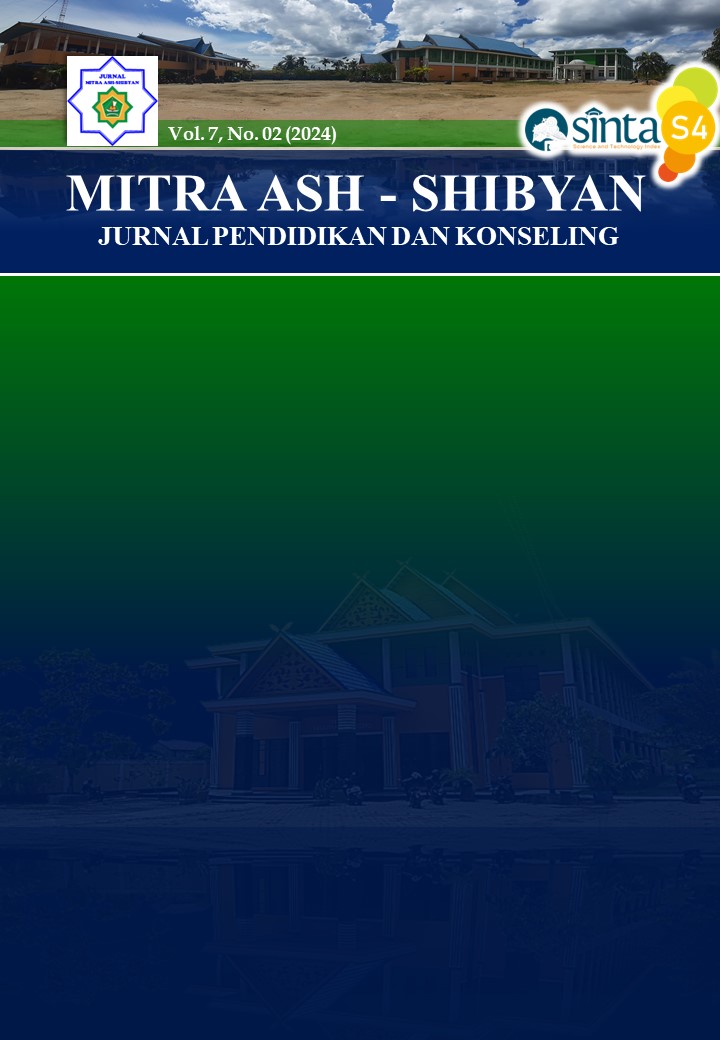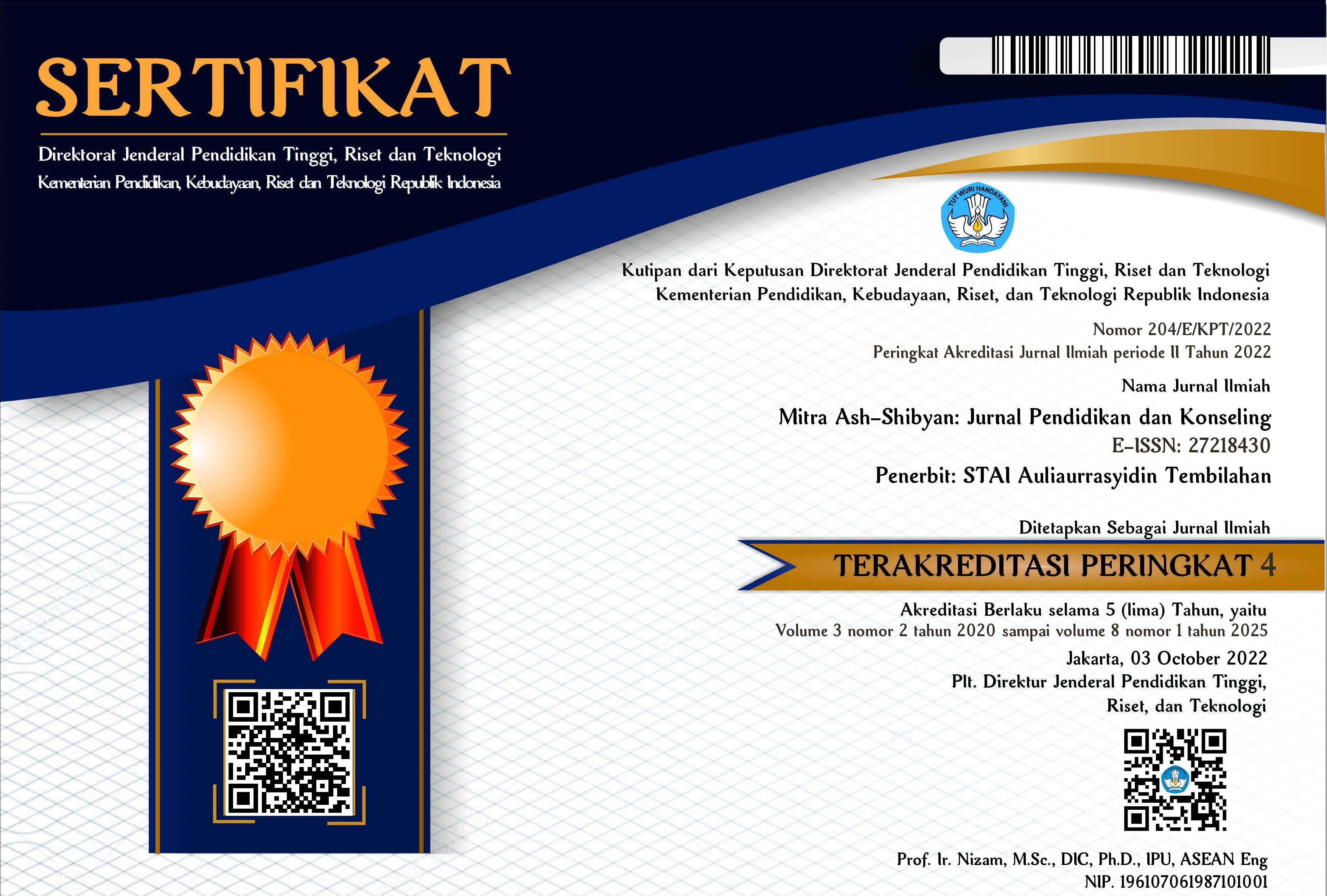Dinamika Sosio-Ekonomi dalam Preferensi Taman Kanak-kanak: Analisis Persepsi Masyarakat di Sumatera Utara
DOI:
https://doi.org/10.46963/mash.v7i02.2178Keywords:
Community perception, Kindergarten, Income level, Early childhoodAbstract
Early childhood education (PAUD), including Kindergarten (TK), plays an important role in shaping children’s character. In North Sumatra, the many choices of kindergartens make parents’ decisions in choosing influenced by various factors, especially income level. This study aims to explore the level of influence of income on public perception in choosing kindergartens in North Sumatra. This study uses a qualitative approach with a population in 5 sub-districts in North Sumatra. The sample consists of parents who have children aged 4-6 years. Data collection techniques include observation and in-depth interviews with instruments in the form of interview guidelines. Data analysis was carried out using triangulation techniques to ensure the validity of the results. The results of the study indicate that income level plays an important role in shaping parents’ preferences in choosing kindergartens. Parents with higher incomes tend to choose kindergartens with superior facilities and criteria, while those with lower incomes consider location and cost more. Therefore, this study provides insight into the importance of economic factors in educational decisions.
Downloads
References
Fauziah, L. (2021). Peran Dukungan Pemerintah dalam Pendidikan Anak Usia Dini untuk Keluarga Berpenghasilan Rendah. Jurnal Kebijakan Pendidikan, 14(3), 67–80. https://doi.org/https://doi:10.1234/jkp.2021.14.3.67
Istiana, Y. (2014). Konsep-Konsep Dasar Pendidikan Anak Usia Dini. Jurnal Didaktika, 20(2), 90–98.
Kurniawan, D. (2023). Pertimbangan Orang Tua Dalam Memilih Taman Kanak-Kanak. NOKEN : Jurnal Pengelolaan Pendidikan, 4(1), 34–42. https://doi.org/https://doi.org/10.31957/noken.v4i1.2911
Lestari, P. (2021). Keseimbangan antara Biaya dan Kualitas dalam Keputusan Pendidikan. Jurnal Manajemen Pendidikan, 19(2), 90–102. https://doi.org/https://doi:10.1234/jmp.2021.19.2.90
Mahendra, Y. (2021). Kualitas Pengajaran dan Fasilitas dalam Pemilihan Taman Kanak-Kanak. Jurnal Pendidikan Anak, 10(1), 34–46. https://doi.org/https://doi:10.1234/jpa.2021.10.1.34
Nartin, S. E., Faturrahman, S. E., Ak, M., Deni, H. A., MM, C., & Santoso, Y. H. (2024). Metode penelitian kualitatif. Cendikia Mulia Mandiri.
Nurhayati, S. (2017). Pengaruh Kondisi Ekonomi Terhadap Tingkat Pendidikan Anak Di Desa Sinar Tebudak Kecamatan Tujuh Belas. Jurnal Pendidikan Dan Pembelajaran Untan, 6(7).
Pratama, A. (2020). Pendidikan Berkualitas dan Latar Belakang Ekonomi Keluarga. Jurnal Pendidikan Masyarakat, 18(2), 54–68. https://doi.org/https://doi:10.1234/jpm.2020.18.2.54
Roosinda, F. W., Lestari, N. S., Utama, A. G. S., Anisah, H. U., Siahaan, A. L. S., & Islamiati, S. H. D. (2021). Metode penelitian kualitatif. Zahir Publishing.
Saputra, A. (2018). Pendidikan Anak pada Usia Dini. At-Ta’dib : Jurnal Ilmiah Pendidikan Agama Islam, 10(2), 192–209
Downloads
Published
Issue
Section
License
Copyright (c) 2024 Luluk Indiyanti, Suci Nurul Akhwatni Saragi, Yuyun Andriani, Nabila Riyani Amanda Saragih, Enjelina Vincere Sihombing

This work is licensed under a Creative Commons Attribution-ShareAlike 4.0 International License.
Authors who publish with this journal agree to the following terms:
1. Copyright on any article is retained by the author(s).
2. The author grants the journal, right of first publication with the work simultaneously licensed under a Creative Commons Attribution shareAlike 4.0 International License that allows others to share the work with an acknowledgment of the work’s authorship and initial publication in this journal.
3. Authors are able to enter into separate, additional contractual arrangements for the non-exclusive distribution of the journal’s published version of the work (e.g., post it to an institutional repository or publish it in a book), with an acknowledgment of its initial publication in this journal.
4. Authors are permitted and encouraged to post their work online (e.g., in institutional repositories or on their website) prior to and during the submission process, as it can lead to productive exchanges, as well as earlier and greater citation of published work.
5. The article and any associated published material is distributed under the Creative Commons Attribution-ShareAlike 4.0 International License







2.png)



